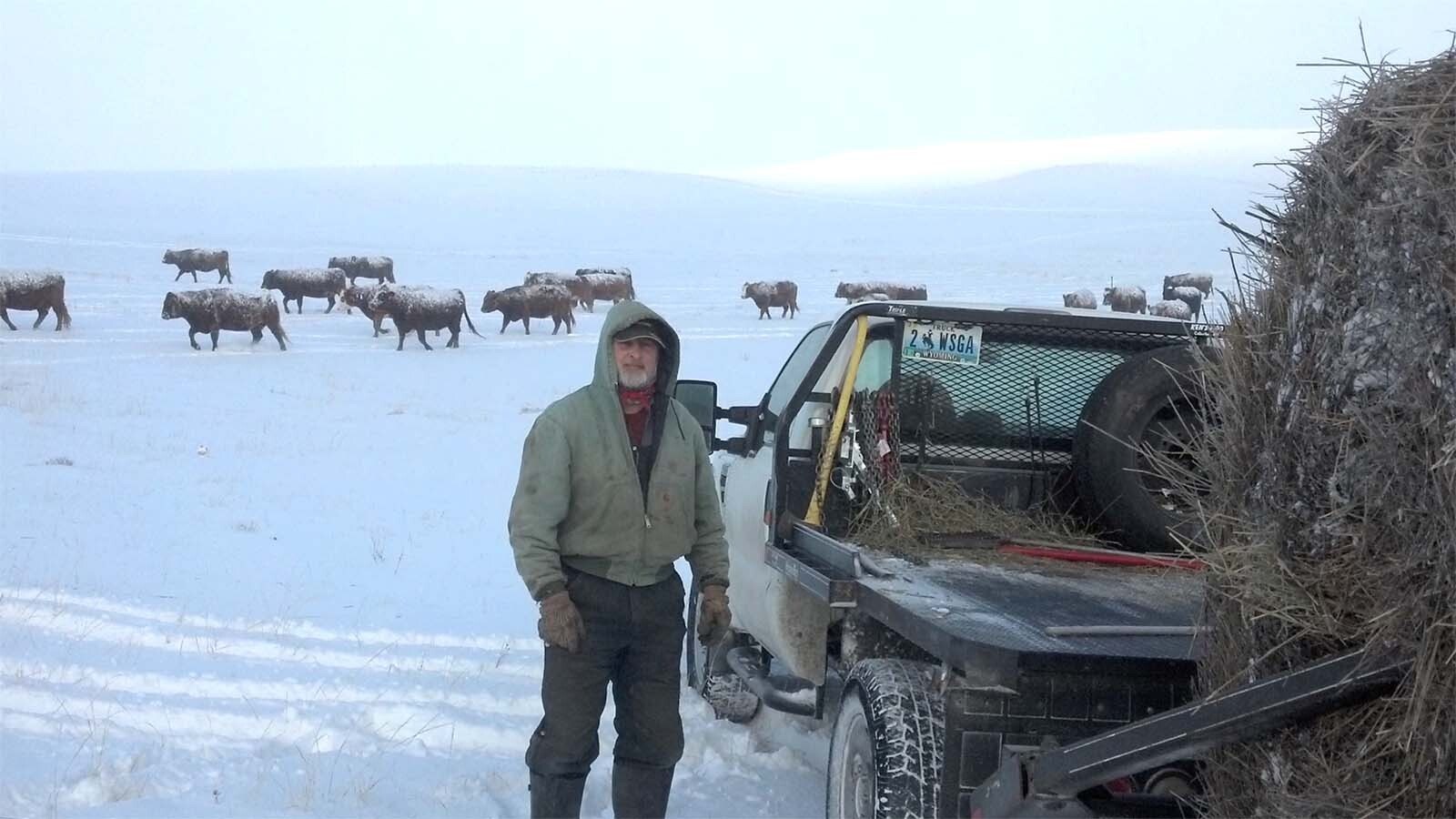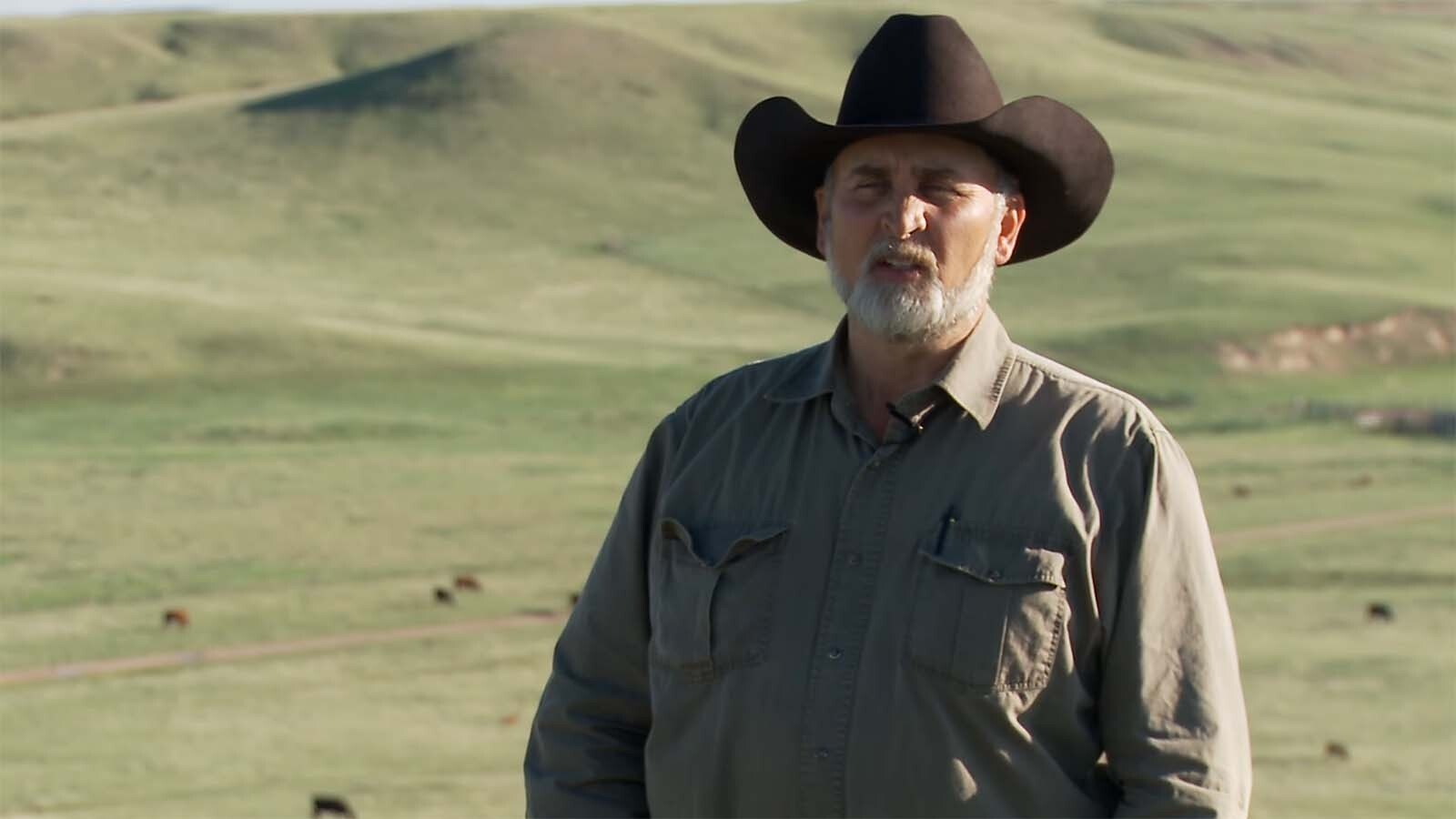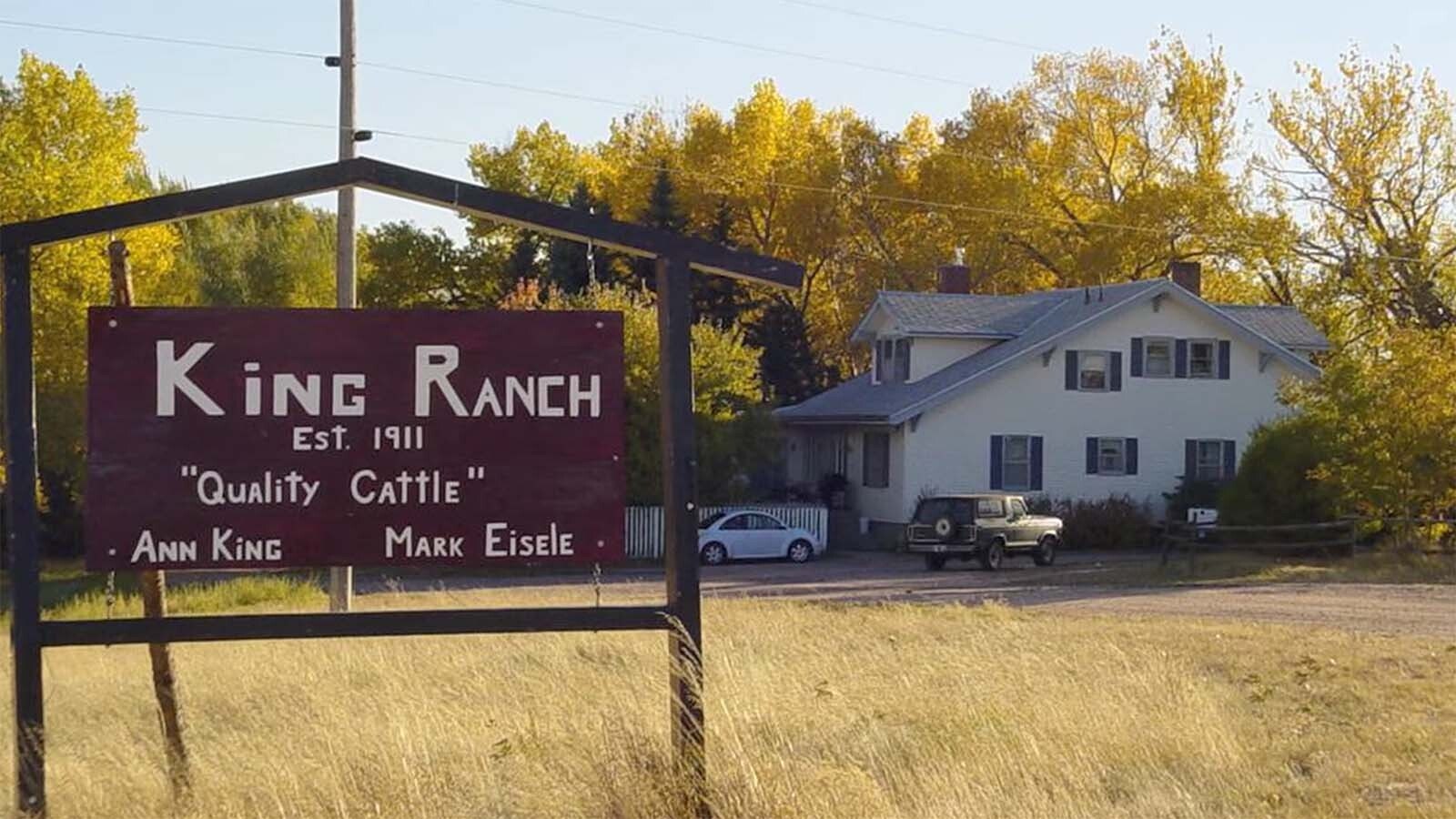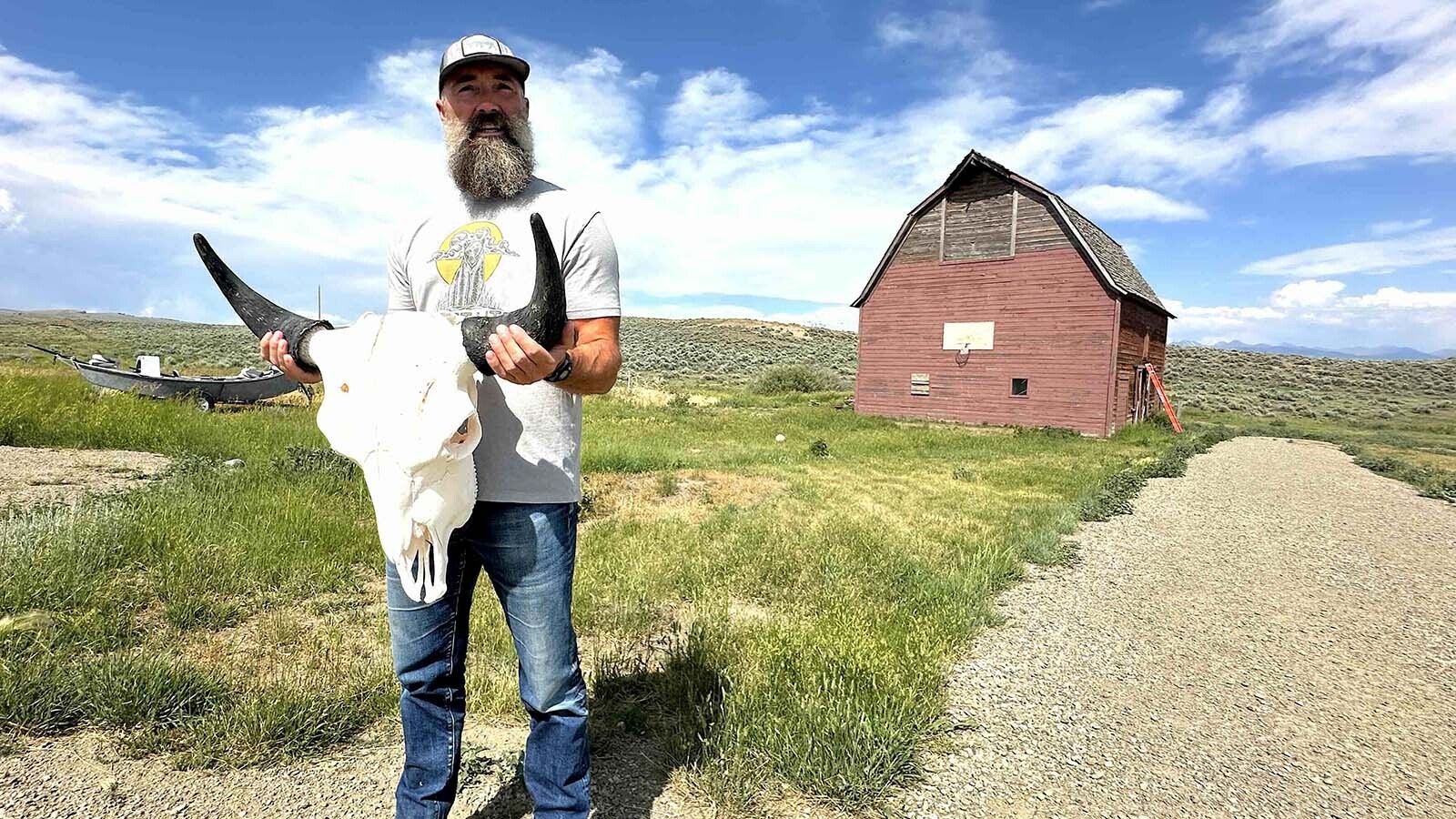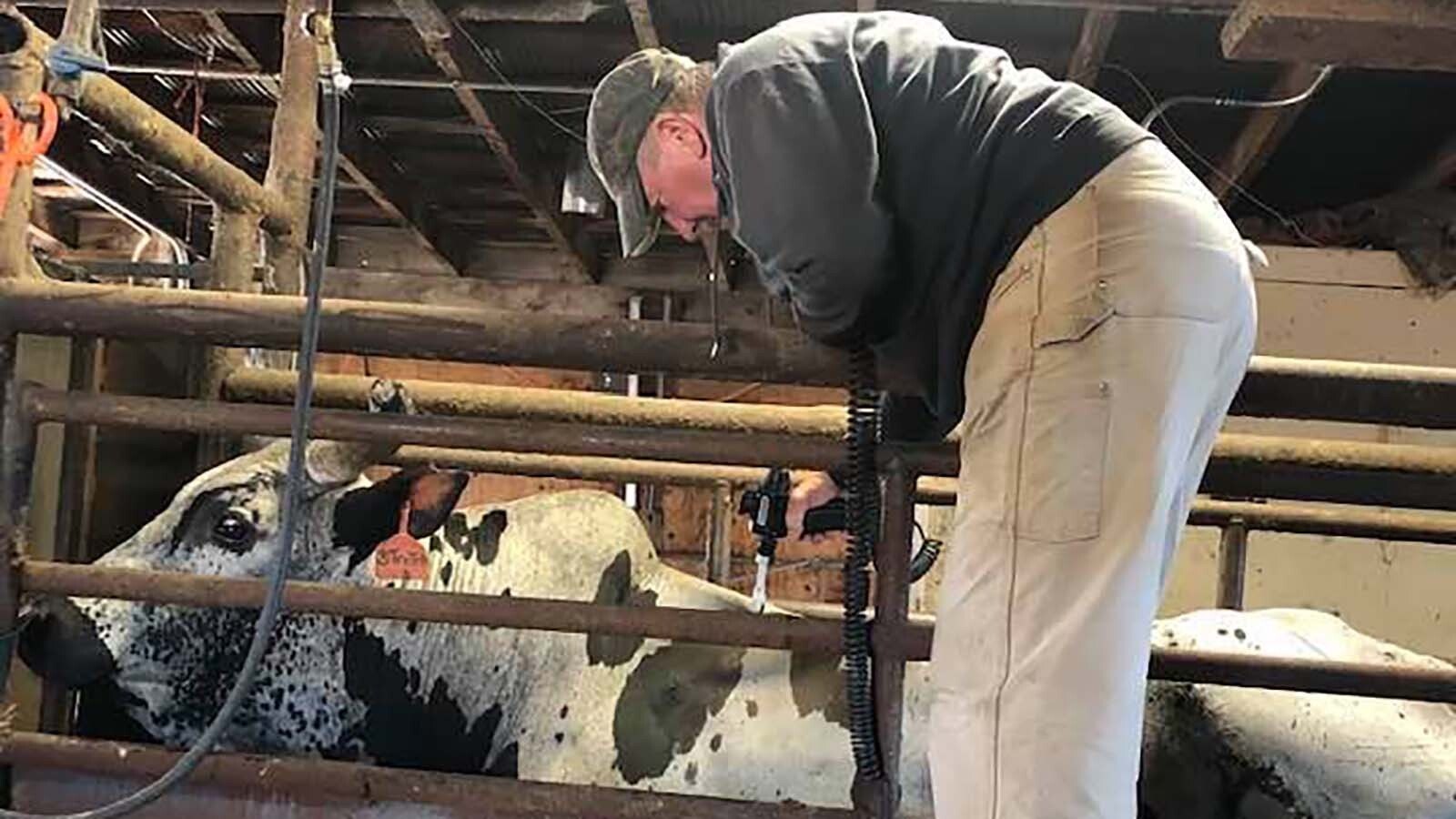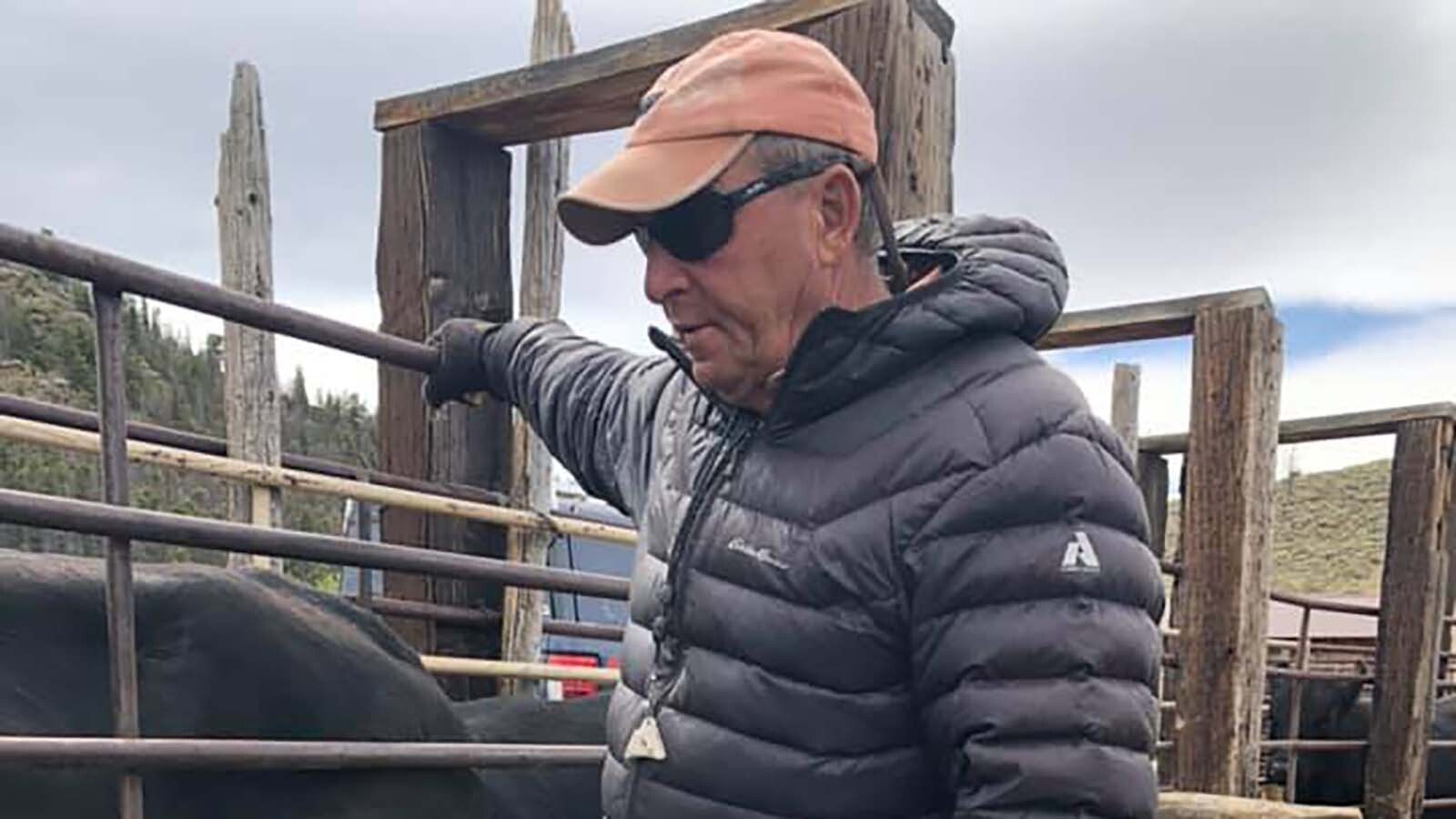In Wyoming, where cattle outnumber the population more than 2-to-1, the economy relies heavily on the ranching industry.
But that low population also means most of the Cowboy State’s cattle operations and small potatoes compared to the giant producers. That puts Wyoming cattle at a disadvantage when in the national beef market.
Fighting that inequity is part of Mark Eisele’s mission. The Cheyenne-area rancher has recently been appointed president of the National Cattlemen’s Beef Association, a position where he could potentially make inroads for local and national beef production.
He told Cowboy State Daily he’ll advocate for policy reforms to address the estate tax, champion voluntary country of origin labeling for beef products, and advocating for comprehensive disease traceability measures for all animals.
“There are a lot of issues that ranchers are facing right now, and I want to make sure I’m out there representing them and fighting for them,” said the 50-year Wyoming rancher.
It’s a fight Wyoming’s state and national political delegations have also taken up. Country of origin labeling is sorely needed, state Senate President Ogden Driskill has said. And U.S. Rep. Harriet Hageman has gone as far as proposing a $5,000-a-pound fine for any meat that’s illegally labeled as coming from the U.S.
Country Of Origin Labeling
Eisele said he’s pushing for voluntary country of origin labeling (COOL) for beef products.
COOL would offer transparency and allow consumers to easily identify where the meat comes from, he said. It also would help curtail some of the dishonest practices that lead to Americans buying foreign beef when they think they’re supporting U.S. ranchers.
As it stands, a package of ground beef may be labeled "product of the USA," but that doesn’t necessarily mean all the meat in that batch of beef was raised and produced in the U.S. Sometimes it can be mostly foreign-raised beef with only a small percentage of American meat.
Now, the only requirement for beef to have this label is for it to be packaged in the United States, not the product actually being from the U.S.
That’s a big problem, Eisele said.
“So, take China for example. They can send their beef to the U.S. to be slaughtered and packaged in the U.S., and that label will go on the beef,” he said. “But the cattle weren’t raised here.”
“COOL would allow American people to know where their meat is coming from and to be able to support American ranchers,” he added. “And it would give them more confidence in the safety and quality of their beef.”
While mandatory COOL was repealed in 2015 because of trade disputes and regulatory challenges, Eisele said he doesn’t want to see it legislated again. Instead, he prefers to have packaging companies voluntarily participate.
By allowing producers to voluntarily label their products with country-of-origin information, consumers can continue to make informed buying decisions while avoiding the complexities associated with mandatory labeling requirements.
“We need consumers to demand COOL from the packaging companies rather than having it legislatively mandated, because all that does is punish the ranchers with having to pay higher tariffs on their exports,” Eisele said.
The Death Tax
Another key policy Eisele is passionate about is the estate tax, commonly known as the "death tax," which he said disproportionately burdens family owned ranches.
The federal government imposes a tax on the transfer of assets from a deceased person to his or her heirs, which can result in substantial bills for ranching families who often leave more assets than liquid cash.
Consequently, this often leads to ranching families having to sell out to cover the tax bill.
“Most ranchers’ wealth is in their assets, not in cash,” Eisele said. “We don’t have $1 million sitting in our bank accounts to pay this death tax, so what happens is, many ranchers end up having to sell their operation just to pay the IRS.”
Eisele personally experienced this in 2011 when he was served with a $1 million bill for the King Ranch he owns in Cheyenne.
He describes the tax as a "moving target," as it constantly changes, sometimes reaching as high as 55% of the total business value.
“How do you plan for something like that?” Eisele said. “You don’t. This isn’t about bad planning or bad choices. You just can’t plan for something you never know what it is going to do.”
Eisele plans to advocate for policy and legislative reforms aimed at eliminating this tax.
“This is one of the cornerstones of my campaign,” he said. “The death tax is, in part, responsible for the decline in the number of family owned ranches and farms that we have in this country and we need to focus on reforming it.”
Disease Traceability
In addition to COOL and the death tax, Eisele said the industry needs comprehensive disease traceability measures for all animals.
Disease traceability is the process of tracking the movement of animals and identifying their origins in case of a disease outbreak.
It involves systematically recording information such as the location, ownership and health status of animals throughout their lifecycle, from birth to slaughter. This system enables ranchers and authorities to swiftly trace the source and spread of diseases, allowing for timely intervention and containment measures.
By accurately identifying all affected animals and their contacts, Eisele said stakeholders can have targeted responses to prevent further transmission and minimize the economic and public health impact of outbreaks.
“Right now, I get the free electronic tags for my females so wherever one of my calves go it can be traced back to my ranch,” Eisele said.
“So that way, if there’s an outbreak of say, for example, foot and mouth disease, then my entire ranch is quarantined for 72 hours and I can’t move or transport my cattle anywhere during that time,” he said.
The law now mandates ranchers trace diseases only in females. Eisele wants to extend this to include males; however, like COOL, he favors a voluntary program over legislative enforcement.
“I want to make it easier and affordable for ranchers so they can opt to put all of their cattle in the disease traceability program,” he said.

